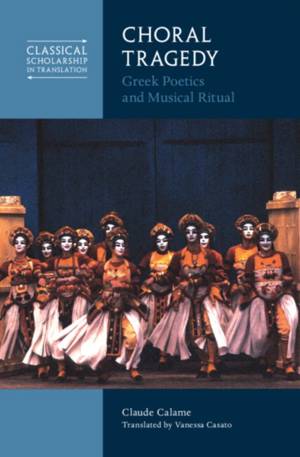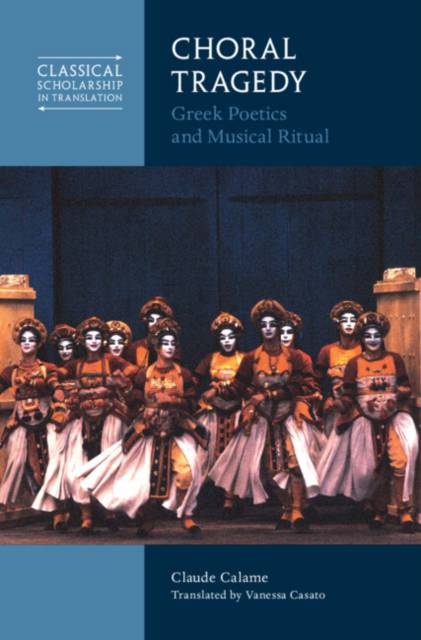
- Afhalen na 1 uur in een winkel met voorraad
- Gratis thuislevering in België vanaf € 30
- Ruim aanbod met 7 miljoen producten
- Afhalen na 1 uur in een winkel met voorraad
- Gratis thuislevering in België vanaf € 30
- Ruim aanbod met 7 miljoen producten
Zoeken
Omschrijving
Ever since Aristotle opened the discussion on the role of the chorus in Greek tragedy, theories of the chorus have continued to proliferate and provoke debate to this day. The tragic chorus had its own story to tell; it was a collective identity, speaking within and to a collective citizen body, acting as an instrument through which stories of other times and places were dramatized into resonant heroic narratives for contemporary Athens. By including detailed case studies of three different tragedies (one each by Aeschylus, Euripides and Sophocles), Claude Calame's seminal study not only re-examines the role of the chorus in Greek tragedy, but pushes beyond this to argue for the 'polyphony' of choral performance. Here, he explores the fundamentally choral nature of the genre, and its deep connection to the cultic and ritual contexts in which tragedy was performed.
Specificaties
Betrokkenen
- Auteur(s):
- Uitgeverij:
Inhoud
- Aantal bladzijden:
- 244
- Taal:
- Engels
- Reeks:
Eigenschappen
- Productcode (EAN):
- 9781316516256
- Verschijningsdatum:
- 2/05/2024
- Uitvoering:
- Hardcover
- Formaat:
- Genaaid
- Afmetingen:
- 152 mm x 229 mm
- Gewicht:
- 494 g

Alleen bij Standaard Boekhandel
+ 317 punten op je klantenkaart van Standaard Boekhandel
Beoordelingen
We publiceren alleen reviews die voldoen aan de voorwaarden voor reviews. Bekijk onze voorwaarden voor reviews.











